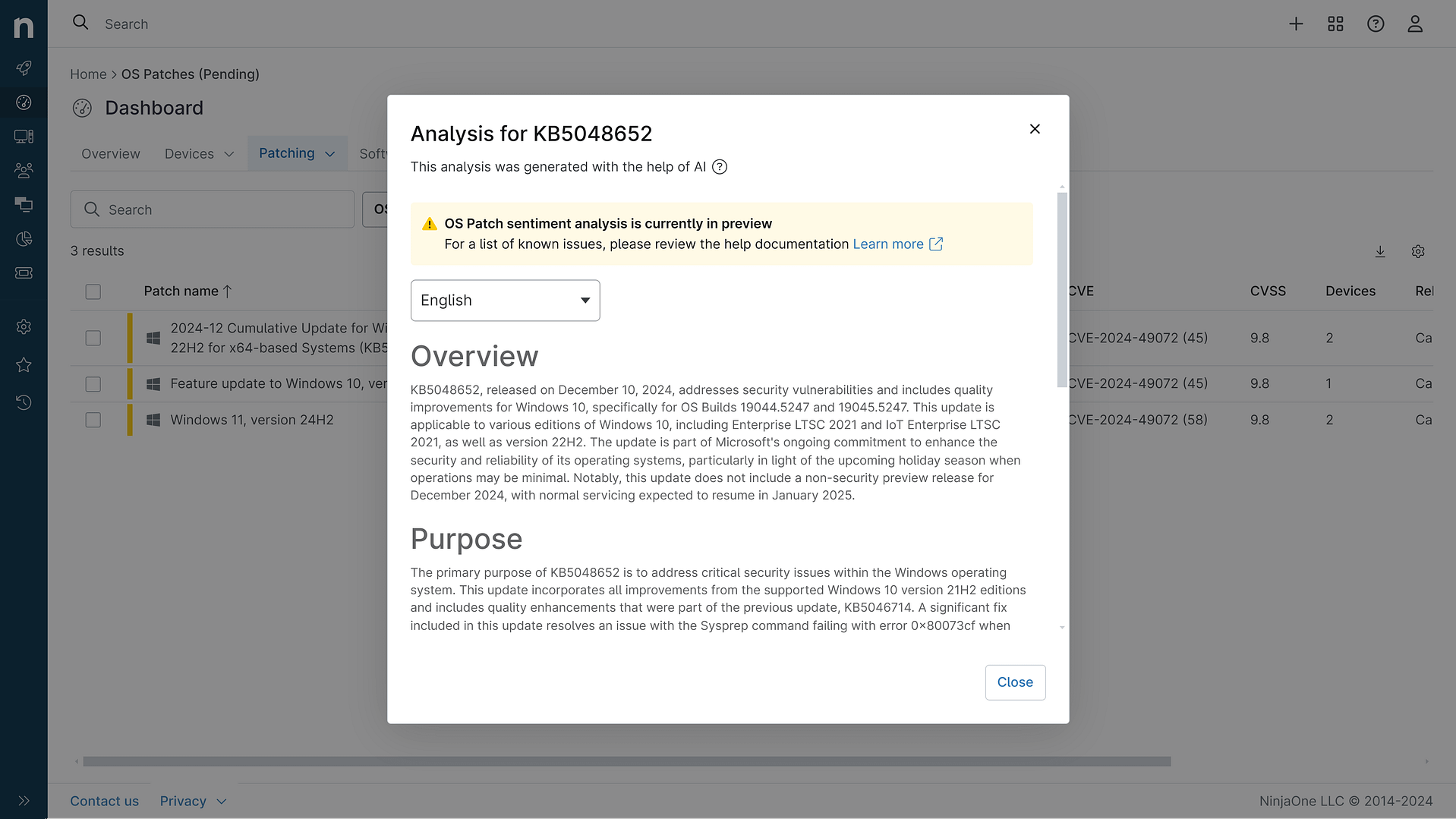KB5033916: Overview with user sentiment and feedback
Last Updated December 22, 2024
Probability of successful installation and continued operation of the machine
Overview
The KB5033916 update, released on January 9, 2024, is a Security and Quality Rollup for the .NET Framework 4.8 specifically targeting Windows Embedded 7 Standard and Windows Server 2008 R2 SP1. This update is crucial as both operating systems have transitioned to Extended Security Update (ESU) support, meaning they will only receive cumulative monthly security updates. The update includes important security enhancements and reliability improvements, which are essential for maintaining the integrity and performance of applications running on these platforms.
This rollup addresses several vulnerabilities, including a security feature bypass, elevation of privilege, denial of service, and remote code execution vulnerabilities. It is recommended that users apply this update as part of their regular maintenance routines to ensure their systems remain secure and reliable. The update also emphasizes the necessity of having the required prerequisites installed before proceeding with the installation.
General Purpose
The primary purpose of KB5033916 is to enhance the security and reliability of the .NET Framework 4.8 on Windows Embedded 7 Standard and Windows Server 2008 R2 SP1. This update addresses critical vulnerabilities such as CVE-2024-0056, which is a security feature bypass vulnerability, and CVE-2024-0057, which pertains to elevation of privilege. Additionally, it resolves CVE-2024-21312, a denial of service vulnerability, and a remote code execution vulnerability related to HTTP .NET remoting server channel chains. While the update does not introduce new quality and reliability improvements, it is essential for protecting systems against known security threats and ensuring continued support for applications relying on the .NET Framework.
General Sentiment
The general sentiment surrounding KB5033916 appears to be cautiously optimistic. Users recognize the importance of applying security updates, especially given the vulnerabilities addressed in this rollup. The fact that Microsoft has not reported any known issues with this update further contributes to a positive outlook. However, some users express concerns regarding the ongoing support for Windows Embedded 7 Standard and Windows Server 2008 R2 SP1, as these systems are now in extended support. This situation may lead to apprehension about the future availability of updates and the potential need for migration to newer platforms. Overall, the sentiment leans towards the necessity of the update for security purposes, with a recognition of the limitations posed by the aging operating systems.
Known Issues
- Microsoft is not currently aware of any issues in this update.
Disclaimer: We take measures to ensure that AI-generated content is of the highest possible quality, but we cannot guarantee its accuracy and recommend that users do their own independent research. Generated on 2024-12-22 07:07 AM
